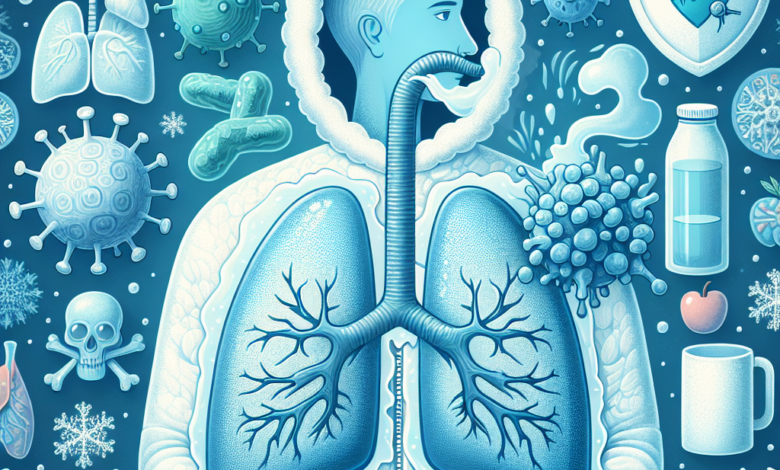Pneumonia in the Winter: How to Protect Yourself During Cold and Flu Season

As winter approaches, the air turns crisp, and the holiday season invites gatherings and celebrations. However, this time of year also brings an increased risk for respiratory illnesses, including pneumonia. Understanding pneumonia, its symptoms, its causes, and how to protect yourself can help you stay healthy during the cold and flu season.
What is Pneumonia?
Pneumonia is an infection that inflames the air sacs in one or both lungs, which may fill with fluid or pus. This condition can be caused by various organisms, including bacteria, viruses, fungi, or even inhaled substances. The severity of pneumonia can range from mild to life-threatening, making it crucial to be aware of the symptoms and seek prompt medical attention if needed.
Symptoms of Pneumonia
Common symptoms of pneumonia include:
- Cough: Often with phlegm or mucus
- Fever: Typically high, accompanied by chills
- Shortness of breath: Difficulty breathing or rapid breathing
- Chest pain: Especially during coughing or breathing deeply
- Fatigue: General feelings of malaise or weakness
- Nausea: Some may experience gastrointestinal upset
If you or someone you care for exhibits these symptoms, especially a combination of them, it’s important to consult a healthcare provider.
How Pneumonia Spreads
Pneumonia can spread in several ways, depending on the causative agent:
- Bacterial pneumonia: Often follows a cold or the flu and spreads through respiratory droplets when an infected person coughs or sneezes.
- Viral pneumonia: Can be caused by the flu virus and is contagious in a similar way.
- Aspiration pneumonia: Occurs when food, drink, or vomit is inhaled into the lungs.
During winter months, the likelihood of viral infections increases, thus heightening the risk of developing pneumonia, particularly in vulnerable populations like the elderly or those with preexisting health conditions.
Protecting Yourself from Pneumonia
-
Get Vaccinated: Vaccines can help prevent pneumonia caused by specific bacteria and viruses. The pneumococcal vaccine is especially recommended for adults over 65 and younger individuals with certain health conditions. The flu vaccine is also crucial, as influenza can lead to pneumonia.
-
Practice Good Hygiene: Regular handwashing is one of the most effective ways to prevent the spread of germs. Use soap and warm water, especially after you’ve been in public spaces. Alcohol-based hand sanitizers are also an effective alternative.
-
Stay Healthy: A strong immune system can help fend off infections. Maintain a balanced diet rich in fruits, vegetables, whole grains, and lean proteins. Regular exercise is also vital, along with sufficient sleep to keep your immune system functioning optimally.
-
Avoid Tobacco Smoke: Smoking damages the respiratory system and increases the risk of respiratory infections. If you smoke, consider seeking help to quit.
-
Limit Contact with Sick Individuals: Try to avoid close contact with individuals exhibiting symptoms of respiratory illnesses. If you are feeling unwell, it’s best to stay home to prevent spreading germs.
-
Stay Hydrated: Drink plenty of fluids to keep your airways moist and help your body fight infections. Warm fluids, such as soups and herbal teas, can be particularly soothing.
-
Humidify Your Environment: Dry indoor air can irritate the respiratory tract. Using a humidifier can help maintain an optimal humidity level in your home, potentially reducing the risk of respiratory issues.
- Keep Regular Health Check-ups: Routine visits to your healthcare provider can help monitor and manage health conditions that may increase the risk of pneumonia.
Conclusion
Pneumonia during the winter months poses a significant health risk, particularly during the cold and flu season. By understanding pneumonia, recognizing its symptoms, and implementing preventive measures, you can significantly reduce your risk of this serious condition. Taking proactive steps towards your health can ensure you enjoy a joyous holiday season free from illness. Stay vigilant, protect yourself, and spread awareness to keep your community healthy this winter.
